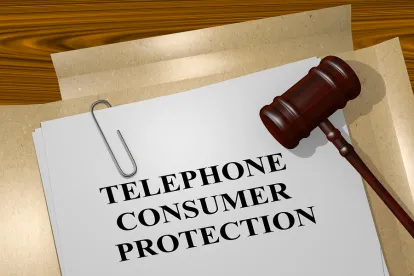A few weeks back Consumer Class Action “Titan” Jay Edelson joined us on the Ramble podcast and predicted that TCPA class actions arising in state court that are removed to federal court and later challenged on Article III grounds would be remanded to state court rather than dismissed with prejudiced. Turns out he was right–at least according to the Eighth Circuit Court of Appeal.
In St. Louis Heart Center, Inc. v Nomax, Inc., No. 17-1794, 2018 WL 3719694 (8th Cir. 2018) the appellate court upheld the district court’s conclusion that an errant opt-out disclosure in a solicited fax advertisement did not cause actionable Article III harm following the U.S. Supreme Court’s decision of Spokeo, Inc. v. Robins, ––– U.S. ––––, 136 S.Ct. 1540, 1549, 194 L.Ed.2d 635 (2016), but reversed the district court’s conclusion that the case should therefore be dismissed with prejudice. Instead the appellate court directed that the case be remanded back to state court where it arose in the first place.
Here’s the background: Plaintiff requested samples of Defendant’s products on at least four occasions and the district court found that the faxes were related to those requests. But although the faxes were solicited, in true Gotcha! fashion, Plaintiff argued that the faxes still violated the TCPA because they did not technically contain the TCPA’s required highly-specific opt out disclosure language. The district court found that such a technical violation of the TCPA did not cause Article III concrete harm, however, because the faxes had been invited and because the faxes did include a reasonable opt out notification, albeit not the one that is actually required by the statute. Thus, the district court concluded, that any harm Plaintiff had suffered was not “fairly traceable” to Defendant’s technical violation of the TCPA.
In addressing the matter on appeal the Eighth Circuit panel upheld all of the key underlying findings respecting the lack of Article III harm. While acknowledging that the loss of toner and paper and time responding to an unsolicited fax might constitute “concrete harm” under Article III, the appellate court found that those “harms” were not fairly traceable to the errant fax disclosures. Since the faxes were consented to:
“Whether or not the faxes contained a proper opt-out notice, their transmission
would have used the Heart Center’s paper and toner, occupied its phone lines, and invaded its privacy. Because there is no ‘causal connection between the injury and the conduct complained of,’ the Heart Center has not established traceability.”St. Louis Heart Center, Inc. v Nomax, Inc., No. 17-1794, 2018 WL 3719694 at *3.
The Court also rejected Plaintiff’s alternate standing theory that the TCPA created a substantive right designed to prevent a “risk of real harm.” In the Eighth Circuit’s view Plaintiff’Appellant “has not established that Nomax’s alleged failure to display a proper opt-out notice compliant with the federal regulations created a risk of real harm.”
Although the Court did not elaborate much, it is enough for TCPA defendants that the Court apparently does not consider the TCPA’s fax opt out requirements to create a substantive right per se:
“The Heart Center had the means and opportunity to opt out from receiving future facsimiles, but simply declined to do so. Any technical violation in the opt-out notices thus did not cause actual harm or create a risk of real harm.”
St. Louis Heart Center, Inc. v Nomax, Inc., No. 17-1794, 2018 WL 3719694 at *3.
Unfortunately for defendants, however, the appellate court reversed the district court’s conclusion that the case should be dismissed with prejudice. Noting that “state courts are not bound by the limitations of an Article III case or controversy” the Eighth Circuit Court of Appeal held that the remand statute compelled the district court to send the case back to state court for further proceedings.
St. Louis Heart Center, Inc. is a great case for defendants right up until it becomes an awful case for defendants. Notably it is one of the few decisions to take into account a substantive defense–the presence of consent–as a predicate for demonstrating an absence of standing under Spokeo. Indeed, it appears to be the first Circuit Court of Appeal decision to adopt that approach. It also applies a broad view of Lujan’s “fairly traceable” test in a manner that forces a Plaintiff to link their harm to a specific violation of the TCPA. This is different (and far more favorable for defendants) than the approach adopted, for instance, by the Ninth Circuit Court of Appeal in Romero. But the Eighth Circuit’s conclusion that the case needed to be remanded rather than dismissed hurts–and not just because it makes Jay Edelson look prescient. Despite an appellate court victory, the Defendant now must re-litigate this case before a state court that is, presumably, less sophisticated respecting federal telecommunications law. Quite the prize.
Most importantly, it is unclear how the Eighth Circuit’s remand rule would apply in cases that originate in federal court. Would the district court have been required to dismiss the case without prejudice? Time will tell. For now I’d predict a lot of new state court TCPA class action filings in states within the Eighth Circuit. And so the world turns…



 />i
/>i

